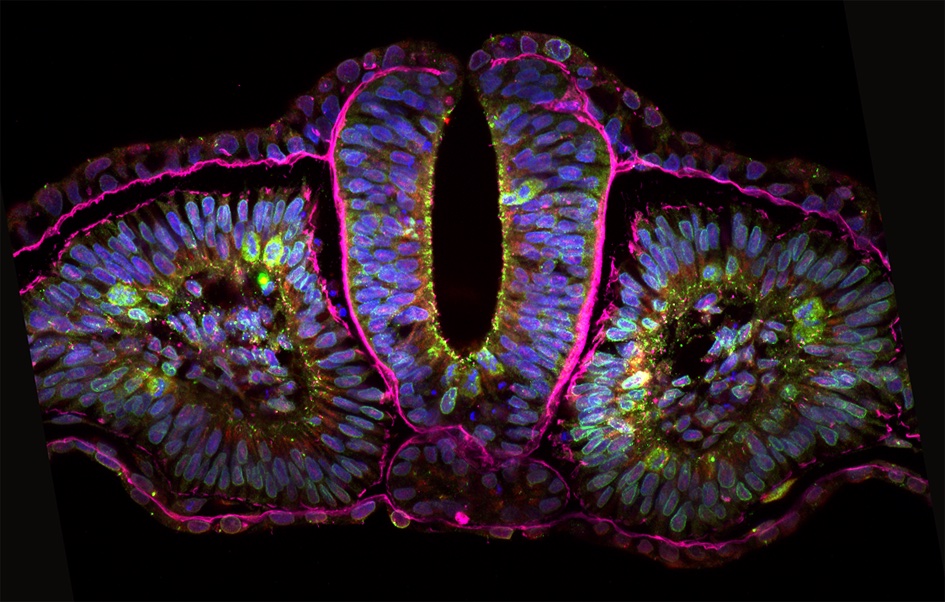
- Tipo de expresión:
- Doctorado: Propuesta de dirección de tesis doctoral/temática para solicitar ayuda predoctoral ("Hosting Offer o EoI")
- Ámbito:
- Biomedicina
- Área:
- Vida
- Modalidad:
- Ayudas para contratos predoctorales para la formación de doctores (antiguas FPI)
- Referencia:
- 2023
- Centro o Instituto:
- INSTITUTO DE BIOLOGIA MOLECULAR DE BARCELONA
- Investigador:
- MURIELLE SAADE
- Palabras clave:
-
- 1q21.1 NDD, sistema nervioso central, ciliopatías del desarrollo neurológico, centrosoma, cilio primario, tubo neural de embrión de pollo, células madre pluripotentes inducidas, organoides neurales 3D humanos
- Documentos anexos:
- 609136.pdf
PRE2023- La Patología del Neurodesarrollo 1q21.1: En busca de las bases biológicas de la enfermedad (PID2022-140285NB-I00)
Genetic dosage imbalances in the distal region of chromosome 1q21 lead to abnormalities in head size and mental pathologies.
Children born with deletions in 1q21.1 exhibit clinical features, including microcephaly and schizophrenia, while the 1q21.1 reciprocal duplications have been associated with macrocephaly and autism spectrum disorder. In fact, the 1q21 region contains a disproportionate number of genes that are human-specific (HS) and that have arisen by evolutionary genetic mutations known as segmental duplications in the last million years. Recent discoveries have revealed an enrichment of 1q21 HS genes expression in neural precursor cells with a potential link with the centrosome/cilia axis. The centrosome is a non-membranous cellular organelle, involved in key functions during central nervous system (CNS) development, where it acts to regulate processes such as; cell division, cilia formation, and cell migration. While many mutations in centrosome/cilium associated proteins lead to diseases, often predominantly affecting the brain, the basis for this specificity is in most cases not known. Combining the chick embryo neural tube with human derived 3D neural organoids, we will 1/dissect the cellular mechanisms associated with selected 1q21 HS genes at the centrosome/cilium, 2/Interrogate the contribution of selected 1q21 HS genes in CNS growth and 3/understand the impact on cellular mechanisms behind the genetic aberration in this neurological disease.
Información adicional
Contactar con la unidad